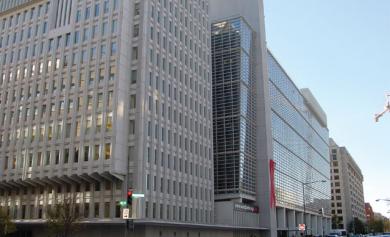
World Bank has expressed its readiness to work in close relations with the Real Estate Developers Association of Nigeria (REDAN) as a way of assisting the federal government in the housing reform agenda.
In a roundtable session with top executives of REDAN in Abuja, the World Bank representatives led by its senior housing finance specialist, Non-Bank Financial Institutions, Mr. Simon Walley, enumerated various challenges facing the country’s housing sector.
Walley said having a special session with REDAN was necessary to achieving progress in its proposed support to the sector.
The World Bank stated that government had not done enough as regards the housing sector but however affirmed that through REDAN, it would support the country in capacity building, proper survey, large scale technical assistance, amongst others.
“We observed that REDAN is an organised informal sector in the Nigerian real estate.
We promise to furnish the association with some vital report carried out on the Nigerian housing sector in order to enable REDAN assist the government in housing reform agenda. We shall also work with the group in several other areas that will be beneficial to the sector,” he said.
The National President of REDAN, Chief Olabode Afolayan, who spoke with Journalists after the meeting said that the session has afforded REDAN a rare opportunity of a holistic over-view of operations in the real estate sector, adding that REDAN would further strategise on tackling the challenges within the real sector and effectively managing and devising sustainable programmes having understood the international perception of the Nigerian residential sector.
Afolayan said the meeting was part of preparations towards REDAN’s annual general meeting which would be attended by some global leaders, including the vice-president of Kenya.
He said: “It has always been a common observation that Nigeria’s long time financial system for housing, which is the Federal Mortgage Bank of Nigeria, (FMBN) has been overwhelmed with enormous challenges and this has complicated the efficiency and the purpose of which it was established.
“It was observed also by the World Bank that internal and external factors have made FMBN as the only secondary mortgage bank plagued with enormous difficulties in managing both the National Housing Fund(NHF) and the Estate Development Loan(EDL).
It was mentioned that data on affordable housing delivered was most times inaccurate.
Managing the informal sector of housing in Nigeria is not well articulated in terms of mortgage financing, and that the lack of regulatory authorities that should stop mortgage bankers from diverting to business of real estate developing has not been firm.”
In a related development, REDAN executives also met with the managing director of the FMBN, Gimba Ya’U Kumo, where it was agreed that both would form a technical committee that would look into various issues of interest waivers and exit point for estate development loans from the federal mortgage bank.
The meeting which was originally meant to serve as a forum where the REDAN will receive update on the outcome of committees setup to address developers problems within the FMBN, ended with a conclusion between the two organizations on possible modalities for determining exit in EDL.
It was revealed that the committee setup to look into issues surrounding developers label as bad debtors have been granted waivers on interest approved on their loans because it was discovered that some developers were not responsible for the circumstances resulting into such huge accrued interest.
Therefore, Kumo, explained that FMBN will want developers to come forward and agreed on interest waivers prior to issuance of formal letters of waivers to such developers by FMBN
?

